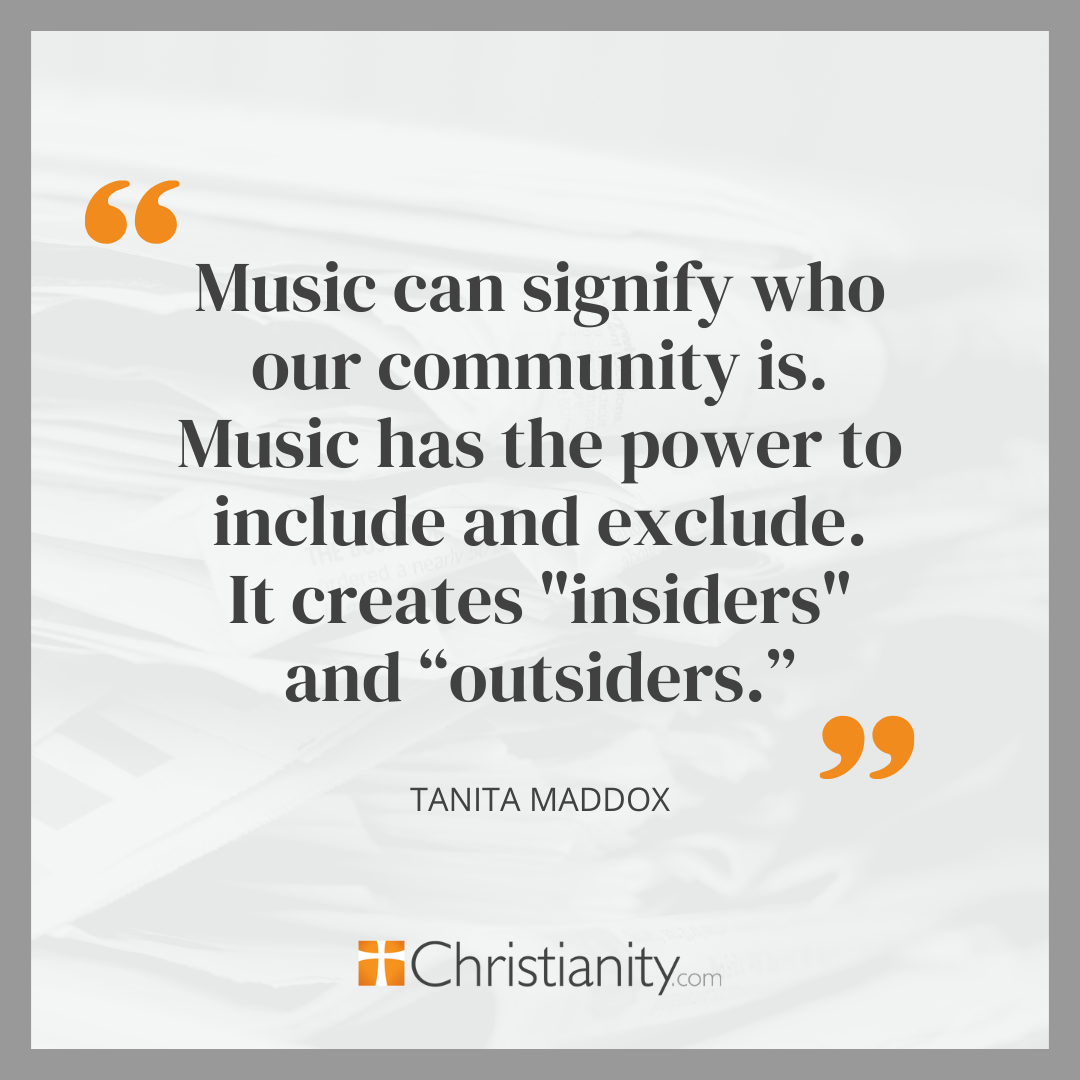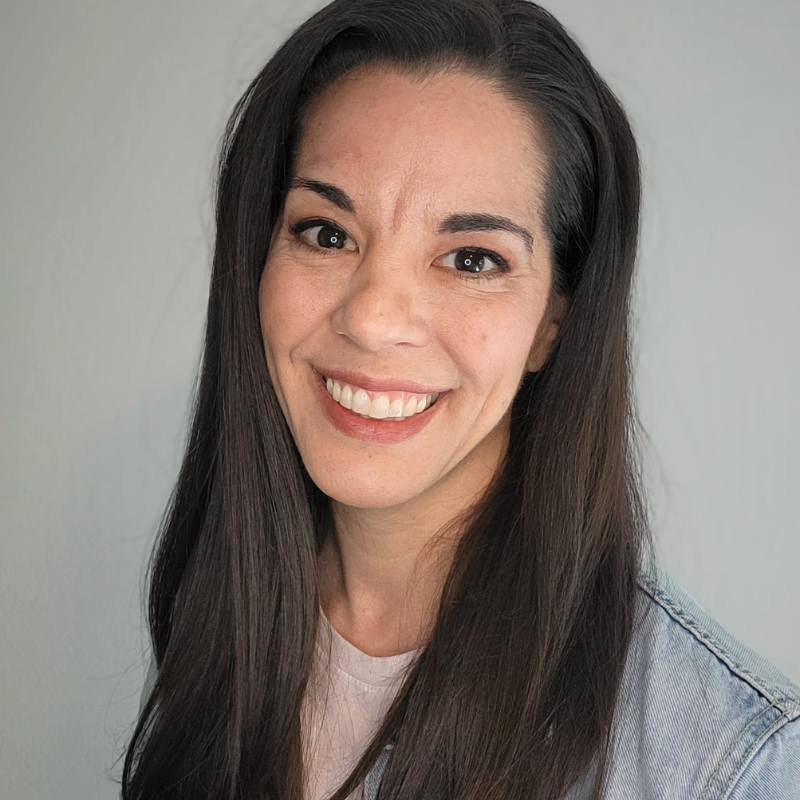Taylor Swift says one of her favorite parts of the Eras Tour was watching fans of all ages bond through music. I can picture it now: singing together, dancing together, throwing arms around each other, and serenading each other. It is a cross-generational, communal experience. I was recently at a carnival event for high school students when the 1971 song “American Pie” blasted through the speakers at one point. I watched 300 high school students gather around the speakers, begin jumping up and down, and belt out the chorus together, 54 years after the song was released. If my Baby Boomer parents were present, they could have sung along with these Gen Zers (minus the jumping in a crowd part). Some Gen Zers were at my house and asked if I could play Weezer’s Blue Album (released in 1994). This was an album that was a part of my high school experience as a Gen Xer, and we found ourselves, in unison, singing “The Sweater Song.”
Music can signify who our community is. Music has the power to include and exclude. It creates "insiders" and “outsiders.” Getting into a car or walking into a room where music is playing, we immediately, often subconsciously, assess if it is “our” kind of music and thus if this is “our” community. Has there been a time when you were surrounded by a group of people who were singing a song together that you did not know? Was there a time you had to admit you didn’t know the song? Or even a time you pretended to know the song? I always feel a little sheepish and uncool in those moments.
Praise and worship and singing hymns and spiritual songs can do the same thing: it has the power to include or exclude. I had a young friend who made the decision to follow Jesus Christ. Never having attended church before, she invited her mother to come with her to her first church service. As she told me about that first experience, she said, “We didn’t know any of the songs, so we just mouthed the words and hoped no one noticed us.” In this case, music at church did not draw in, but signified to newcomers that they were not members of this special club. How can we prevent this experience from happening to others? There are ways music can be a welcome embrace, rather than a secret handshake one has to learn.

3 Ways Music Can Be a Spiritual Experience That Bridges Generations
There are natural and organic moments like the ones listed earlier, but most of the time, if we are striving to bring different people from different backgrounds and experiences and are members of different generations, we have to be more intentional about building that bridge:
1. Give permission to learn something new:
Many people benefit from being given permission to feel uncomfortable or awkward as they learn something new. I don’t like to feel stupid, inept, or embarrassed; I’m not sure any of us do. But alas, when we are learning something new, discomfort, awkwardness, feeling inept, or embarrassment tend to be regular companions on that journey.
We can say out loud, “Just because you feel these things doesn’t mean you are doing anything wrong. You are not failing; you are learning. These are a part of the journey, and we all get to experience these things if we want to learn something new.” To be in community, to be in mutual submission to one another, means that we all will be uncomfortable sometimes in order to serve and love our neighbors. Give permission for that. Even celebrate that! In the right setting, discomfort can be the road to growth and maturity as we learn new things.
2. Remind that worship is both expressive and formative:
The main critique I have heard over the years when it comes to singing praise and worship at churches is: “It just didn’t connect with me.” This is a common position, but it is a very passive approach. It assumes the job of the worship leader or the music is to reflect the exact heart position of each person at that moment. Now, the worship might be reflective of that moment, in which case the worship is expressive. It is a physical and out-loud expression of the internal experience with God. That is not the only purpose of worship.
Worship should also move us and form us. Maybe we hear the music and look at the lyrics, and they do not resonate with where we are in that moment. Maybe we look around the room and do not connect with how others are responding, and make assumptions about their lives versus our own. Do not resign and disengage. This is an opportunity to allow the Holy Spirit to use worship to change and form the state of our heart, mind, and spirit. We lean in because it is a spiritual discipline to worship when we do not feel like worshiping. It is not inauthentic to sing because we don’t mean the words, just like it is not inauthentic for me to get up and go for a run when I would rather stay in bed. Both running and worship are physical practices I engage with because I know that with consistency, they will change me. We get to bring who we are to the altar of Christ, and He reforms us through the act of worship until it is an expression of where we are. Worship forms us.
3. Make a concrete connection between generations:
Sometimes we think the connection between the songs sung and the individuals singing them is obvious and automatic. This is a mistake. Just because we can see a connection doesn’t mean everyone else does. It is helpful to make a concrete connection between the human experience all generations experience and the worship we are invited to engage with.
I think in some ways, music can be an antidote to isolation. It bonds us and shares our stories and God’s story in lyrics and melody. Music can connect us to the global and historical church. But we have to help form this connection to each other in an out loud, concrete explanation.
I was in a service where a couple hymns were being sung. The young person next to me noticed the tears rolling down my cheeks as I sang 18th-century lyrics. Afterwards she asked me about it, “I have never seen someone cry singing a hymn before. What about that hymn meant so much to you?” I explained to her that it was much bigger than singing a song.
I went on to share that when I sing that hymn, or any hymn, I get to participate and share in the same words and experience as everyone else who has ever sung that hymn. That means I get to connect with followers of Christ in this room and over the last two hundred years. We are sharing the same experience. I wonder about other Christians around the world today who may also be singing this hymn in their local settings and in their local language. When I sing that hymn, I get to join together with them too as they sing. It is music we share, and it creates a shared worship experience that extends far beyond the room we are standing in.
Finally, I shared, “When I sing those lyrics to God, it isn’t about just me singing to God. It is about joining a choir of Christ-followers around the world, along with those who have gone before us, who lived faithful lives fifty years ago, one hundred years ago, and two hundred years ago. I get to sing together with them in adoration of the same God. I am overwhelmed by being a part of that community, sharing in the same saving faith and worship of a God who is outside of time and receives all of our worship.”
This young person looked at me, thoughtful and teary-eyed, and said, “I guess I’ve never thought of it like that.”
That is the importance of music as a bridge between generations of Christians. We cannot hope that each generation learns through osmosis or exposure to worship. We must be intentional in connecting the dots so generations can stand side by side, even hand in hand, in worship together.
Photo Credit: ©Getty Images/Alishia Abodunde / Stringer





.jpg)